By Treatment
- Panchakarma Treatment
- Liposuction Surgery
- Hepatitis Treatment
- Liver Transplant
- Liver Fibrosis
- Liver Tumor
- Liver Cancer
- Liver Cirrhosis Treatment
- Coronary Artery Bypass Grafting Surgery
- Heart Valve Replacement
- Angioplasty
- Aortic Valve Replacement
- ASD/VSD closure surgery in India
- Cardiac Tumours in Children
- Cardiac Ablation Surgery
- Renal Angiogram
- Cardiac Tumour Treatment
- Pacemaker Implant
- CRT-D Implant
- CRT-P Implant
- Hernia Surgery
- Spine Surgery
- Spine Tumor Surgery
- Spinal Cord Cancer
- Cervical Spine Surgery
- Spinal Fusion Surgery
- Facet Joint Spine Surgery
- Knee Replacement Surgery
- Rhytidoplasty Surgery in India
- Hip Replacement Surgery
- Shoulder Replacement Surgery
- Cataract Surgery
- TAVR (Transcatheter Aortic Valve Replacement) Treatment in India
- Breast lift surgery in India
- Face Lift Surgery
- Rhinoplasty surgery in India
- Yoga and Meditation in India
- Thigh Lift surgery in India
- Breast augmentation
- Robotic Knee and Hip Replacement Surgery
- Mentoplasty Treatment in India
- Naturopathy Treatment in India
- Arthroplasty surgery in India
- Cordotomy Surgery
- Arthroscopy Surgery in India
- Aromatherapy in India
- Macular Degeneration
- Spinal Decompression Surgery
- Penile Implant Surgery in India
- Erectile Dysfunction Treatment in India
- Diabetes cause Impotence Treatment India
- Peyronie's treatment in India
- Urethroplasty Surgery in India
- Artificial Urinary Sphincter Surgery in India
- Shockwave Therapy for Erectile Dysfunction
- Phalloplasty Surgery in India
- Penectomy Surgery India
- Priapism Treatment in India
- Multiple Sclerosis
- Hysteroscopic Surgery
- LEEP (Loop Electrosurgical Excision Procedure) Treatment
- Vaginal Hysterectomy Surgery
- Lasik Eye Surgery
- Laparoscopic Myomectomy
- Glaucoma Treatment in India
- Hysteroscopy Treatment
- Astigmatism Treatment in India
- Corneal Transplant
- Cochlear Transplant
- Dialysis & Kidney Transplant
- Hysteroscopic Myomectomy
- Tympanoplasty Surgery
- Block Dissections of Neck, Endolymphatic Sac in India
- Interstitial Cystitis Treatment
- Total Laparoscopic Hysterectomy (TLH)
- Multiple Scoliosis Surgery
- Myomectomy Treatment
- Stapedectomy Surgery
- Thyroid Cancer Treatment
- Dilation and Curettage
- Trigger Point Injection (TPI)
- Deep Brain Stimulation (DBS)
- Bone Marrow Transplant
- Scoliosis Surgery in India
- Spondylolisthesis Spine Treatment
- Colposcopy
- Ossiculoplasty surgery in India
- Laparoscopic Uterine Suspension Surgery
- Rotator Cuff Tear Surgery
- Laryngectomy Surgery in India
- Micro Laryngeal surgery in India
- Laparoscopic Supracervical Hysterectomy
- Pelvic Laparoscopy Surgery
- Functional Endoscopic Sinus Surgery in India
- Cardiology
- Liver Disease Treatment
- Osteoarthritis Spine Treatment
- Arthrodesis Surgery
- Gallbladder Cancer Treatment
- Pancreatic Cancer Treatment
- Meningiomas Treatment
- Ovarian Cancer Treatment
- Testicular Cancer Treatment
- Anterior Cruciate Ligament (ACL) Surgery
- Bone Marrow Cancer
- Orthopaedics & Joint Replacement
- Degenerative Disk Spine Treatment
- Herniated Disc Spine Treatment
- Neurology and Neurosurgery
- Anal Cancer Treatment
- Kidney Cancer
- Minimally Invasive Spine Surgery
- Bladder Cancer Treatment
- Stomach Cancer Treatment
- Mouth Cancer Treatment
- Bone Cancer Treatment
- Throat Cancer Treatment
- Breast Cancer Treatment
- Chemo Treatment
- Colon Cancer Treatment
- Esophageal Cancer Treatment
- Obstetrics & Gynaecology
- Herniated Disc Surgery
- Aortic Stent Grafting
- Head and Neck Cancer Treatment
- Artificial Spine Lumbar Disc Replacement
- Spine Osteotomy
- Lumbar Laminectomy for Spine or Spinal Decompression
- Lungs Cancer Treatment
- Cancer Treatment
- Breast Surgery
- Cardiothoracic & Vascular Surgery
- Head & Neck Cancers
- Prostate Cancers Treatment
- Neuroscience
- Heart Transplant
- Liver Surgery
- Pediatric Neurosurgery
- Acute Leukemia
- Coronary Angiogram
- End-Stage Liver Disease Treatment
- Peripheral Angioplasty
- Cardiac Resynchronization Treatment
- Radiofrequency Ablation
- Automatic Implantable Cardioverter Defibrillator
- Percutaneous Transvenous Mitral Commissurotomy
- Coronary Angioplasty
- Cerebral Angiogram
- Peripheral Angiogram
- Angiography
- Eyelid Surgery
- TLIF Surgery
- Ear Surgery
- Body Lift Surgery
- Endoscopic Disc surgery
- Endoscopic Cranial Surgery
- Stroke Treatment
- Renal Angioplasty
- Leukemia Treatment
- Peripheral Neuropathy Treatment
- Parkinson’s disease
- Cardiac Catheterization
- Percutaneous Transluminal Angioplasty
- Pericardial Cysts
- Cardiac Arrest Treatment
- Bariatric & Metabolic Surgery
- Deceased Donor Liver Transplant
- Living Donor Liver Transplant
- Electrophysiology Study (EPS)
- Shoulder and Elbow Replacement
- Urology
- Pediatric Heart Surgery
- Cardiac Surgery
- Vascular Surgery
- Endoscopic Surgery
- Pacemaker Implantation
- Urological Oncology
- Alzheimer’s Disease Treatment
- Reconstructive Urology
- Endocrinoly
- Lumbar puncture
- Diabetes Stem Cell Treatment
- Pediatric Liver Transplant
- Endocrine Stem Cell Treatment
- GI surgery
- GI Oncology
- Hemodialysis
- Hemorrhoids Surgery
- Endoscopy
- Gastric Bypass Surgery
- Renal Failure
- Headache
- Kidney Biopsy
- Sleep Disorders
- Craniotomy Surgery
- Atrial Fibrillation Surgery
- Autism - Stem Cell Treatment
- Heart Implants
- Neuropathy
- Robotic Urology
- Blood Clot Brain Surgery
- Laser Urological, Surgery
- Brain Haemorrhage Treatment
- Retinal Surgery
- Laser Eye Surgery
- Heart Valve Disease
- Renal Transplant
- Hematology
- Thalassemia Treatment
- Sports Injury
- Sickle Cell Anemia
- Cosmetic and Plastic Surgery
- Robotic Joint Replacement
- Multiple Myeloma
- Pediatric oncology
- Medical oncology
- Minimal Invasive Brain Surgery
- Open Heart Surgery
- Rheumatology & Clinical Immunology
- Lymphoma
- Neonatology
- Laparoscopic Surgery
- Radiology
- Blood Cancer
- Dermatology and Cosmetology
- Paediatric Cardiology
- IVC Filter Insertion Procedure
- Minimal Access Surgeries
- Paediatric & Adolescent Endocrinology
- Dentistry and Maxillofacial Surgery
- Diabetology
- Interventional Cardiology
- Reconstructive Surgery
- Dietetics and Nutrition
- Oncology
- Radiation Oncolgy
- Aplastic Anemia
- Gynaecology - Oncology
- Brain Tumor Surgery
- Ophthalmology
- Abdominal Surgery
- Haemato Oncology
- Onco-Neurosurgery
- Thoracoscopic surgery
- Acute Leukaemia Treatment
- Kidney Failure Treatment
- Oncology & Oncosurgery
- Hepatobiliary
- Gland Surgery
- Liver Biopsy
- Gastroenterology
- Nephrology
- Interventional Radiology
- Transplant Nephrology
- Urological Cancers
- Neurovascular Surgery
- Internal Medicine
- Kidney Stone
- Heart Surgery
- Radiosurgery
- ENT & Cochlear Implant
- Chronic Liver Disease
- Cosmetic Eye Surgery
- Minimally Invasive Surgery
- Spa therapy Treatment in India
Herniated Disc Spine Treatment
Herniated Disc Spine Treatment is a treatment in which discs provide cushioning for the vertebral column, which is the spine in the back. These little pillow-shaped discs have a tricky outer layer (annulus) that encircles the nucleus. They are spherical, like little pillows. The spinal bones’ shock absorbers are discs, which are positioned between each bone in the rachis.

What are the benefits of herniated disc spine treatment in India?
Herniated discs hurt because they press against sensitive spinal structures like nerves.
The typical modifications to one’s lifestyle involve identifying and avoiding things that cause back discomfort. Depending on your circumstances, your doctor might advise one of the following:
- Avoid doing high-impact sports like gymnastics and running.
- Do not subject your body to excessive stress.
- If you are overweight or obese, lose weight.
- additional bed rest
Who needs Herniated Disc Spine Treatment in India?
Spine treatment is necessary in the case of a herniated disc. Fortunately, surgery is not usually necessary for all the cases, the sciatica/radiculopathy symptoms become better over time. Surgery for a herniated disc is an option if you’re otherwise healthy. One should consult the doctor if he/she experiences the following symptoms :
- You are in so much pain that you are unable to move or perform your everyday tasks.
- The disc is pressing on your nerves, causing numbness or weakness.
- Your bowels and bladder are out of your control.
- You have difficulty walking or standing.
How is Herniated Disc Spine Treatment done?
Herniated Spine Treatment Costs in India A herniated disc operation might run you between Rs. 3.5 and 4.5 lakhs.
Testing and identification:
The following is a list of testing modalities: MRI is the most popular imaging method for this disease. For the complete examination of the bone, some more x-rays of the afflicted area are often required.
- X-ray: With the use of radiation for creating a picture or movie of a specific body area reveals the vertebral column’s structure as well as the joints position.
- CT SCAN: A CT Scan is an image generated after a diagnosis and produced when the X-rays are read by the computer; it displays the size as well as the shape of the epithelial duct, its contents, as well as the structures nearby.
- MRI: Magnetic Resonance Imaging is a test that uses strong magnets and with the help of computer technology it creates 3- Dimensional images of the body structures; it can detect tumors, enlargement etc.
- Myleogram: It’s the spinal canal X-ray taken when a contrast material is injected to the fluid spaces in surrounding. It reveals the pressure that is on the nerves caused by a herniated disc.
Non-Surgical Treatment:
Initial nonsurgical and conservative care for a slipped disc may be given without surgery. A doctor might urge the patient to continue engaging in painless activity for some days and it can take several weeks too. This aids in reducing nervus spinalis irritation. Rest is not advised. If there is a mild pain, an anti-inflammatory drug is frequently used to treat a slipped disc.
Surgical Intervention:
- Lumbar Spine Surgery: It is frequently used to treat neuralgia and leg pain brought on by a slipped disc. This process is carried out with a small, modest incision made over the location of the slipped disc in the centre of the back. After the skin incision is done, the muscles are pulled to one side so the doctor can examine the vertebrae behind them.
- The precise location of the slipped disc, as well as the doctor’s experience and preference, affect whether the procedure should be performed from the front of the neck (anterior) or the back of the neck (posterior). The spine is stablised.
Dania Medicare Solutions offers doctors with years of experience and strong success rates in this field.
What are recovery and post-op care like after herniated disc spine treatment in India?
Around 4 weeks after ruptured disc surgery, the majority of patients can resume their regular activities. For two weeks following your discectomy surgery , follow certain precautions : –
- You should not attempt any bending, lifting, or twisting of any kind since this could impede your healing and raise your chance of reherniation.
- While you’re still recovering from lumbar herniated disc surgery, refrain from lifting anything heavier than five pounds for two weeks.
What are the risks and complications of herniated disc spine treatment in India?
Complications from discectomies are quite uncommon. However, a small number of people may go through the following:
- Bleeding infections tearing of the protective layer of the spine
- Nerve damage
After the healing process, some people may still feel discomfort from a herniated disc. In some instances, the pain could get worse with time.
Need help choosing the right hospital?
Get assistance for your treatment from our experienced care team!

Fortis Escorts Heart Institute, Okhla, New Delhi
With a legacy of over 33 years, Fortis Escorts Heart Institute, New Delhi has established itself as a pioneer in the field of cardiac care, and is recognized for its path-breaking work and services to numerous heart patients. Armed with clinical expertise and cutting-edge technology, Fortis Escorts Heart Institute has enriched numerous lives through its world-class treatment and compassionate patient care. With Padma Shri and Padma Bhushan awardees serving as doctors, the hospital is recognized the world over as a center of excellence, today.
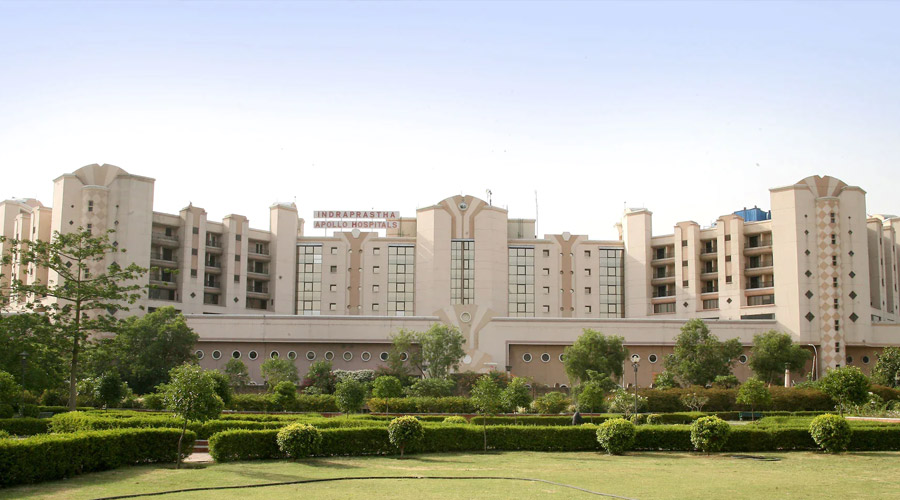
Indraprastha Apollo Hospital, New Delhi
Established in 1996, Indraprastha Apollo Hospital is NABL and JCI accredited. Apollo Group offers 10,000 beds across 64 hospitals, more than 2,200 pharmacies, over 100 primary care & diagnostic clinics and 115 telemedicine units across 9 countries. Indraprastha Apollo Hospital has 52 specialties under one roof.
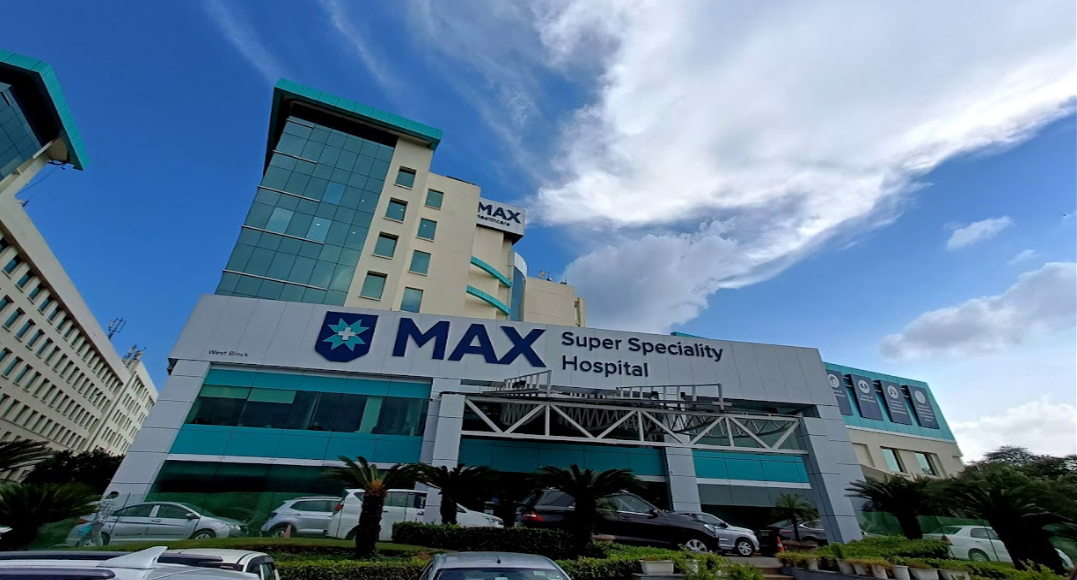
Max Super Speciality Hospital, Saket
Max Super Speciality Hospital Patparganj, Delhi has been one of the top medical care facilities for people living in India as well as internationally. It is home to one of the best speciality treatment centres with the best doctors renowned in India and internationally.
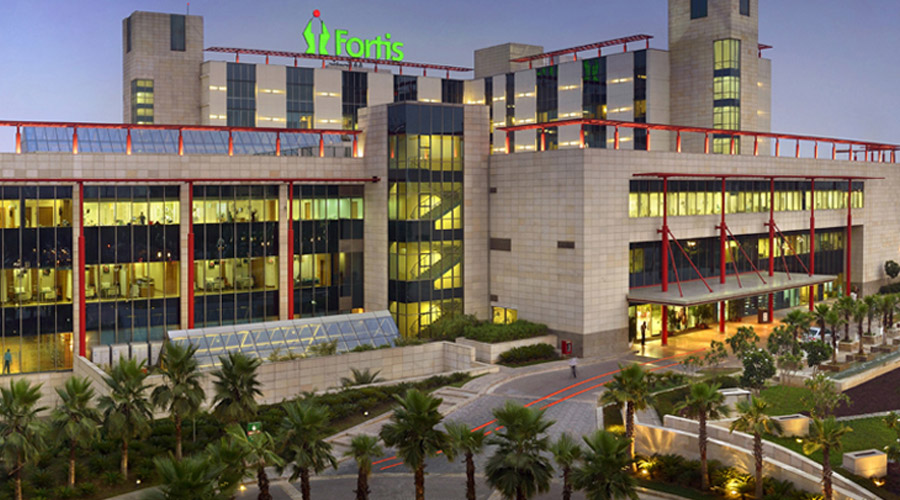
Fortis Memorial Research Institute – Gurugram, NCR Delhi
Fortis Memorial Research Institute (FMRI), a multi-super-specialty, quaternary care hospital, is considered as one of the best hospitals in Gurgaon. Fortis Hospital, Gurgaon, has undergone a thorough on-site review of the quality and safety of care being provided and is committed to continuously meeting rigorous international standards.

IBS Hospital
Established in the year 2011, IBS Hospitals ( Managed by Sri Neurocare Pvt. Ltd.) have managed to create a niche in providing advanced medical care in the field of neurosciences. The Hospital specializes in advanced neurology, neurosurgery, spine surgery, and joint replacement surgeries.
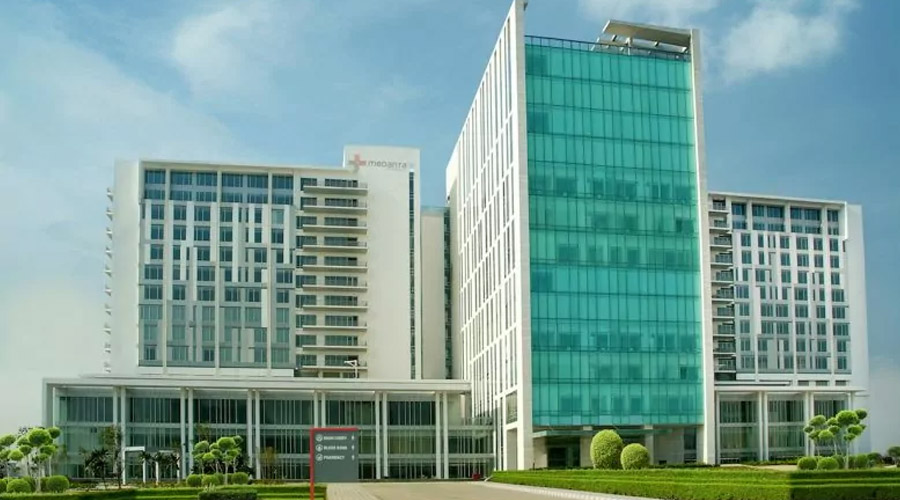
Medanta – Multi-Super Specialty Hospital
Medanta – The Medicity is one of India’s largest multi-super specialty institutes located in Gurgaon, a bustling town in the National Capital Region. Founded by eminent cardiac surgeon, Dr. Naresh Trehan, the institution has been envisioned with the aim of bringing to India the highest standards of medical care along with clinical research, education and training.
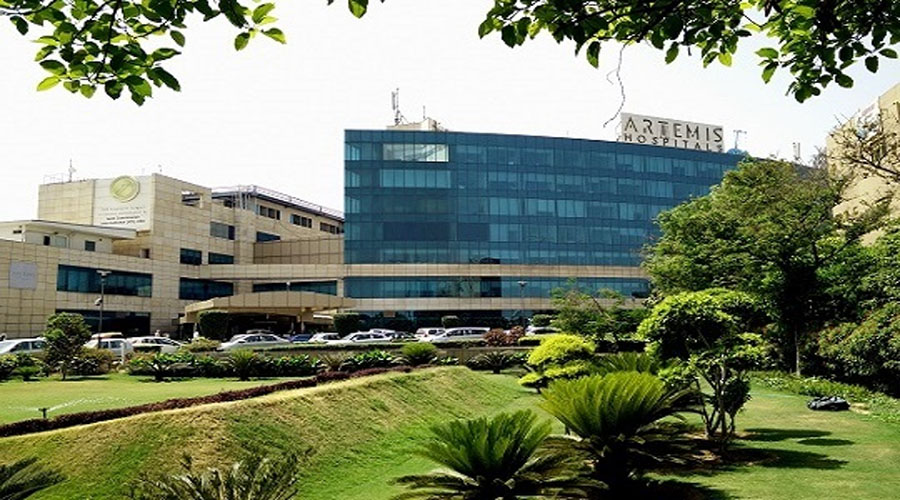
Artemis Hospital – Gurugram, NCR Delhi
Artemis Health Institute, established in 2007, is a healthcare venture launched by the promoters of the Apollo Tyres Group. Artemis is the first Hospital in Gurgaon to get accredited by Joint Commission International (JCI) (in 2013). It is the first Hospital in Haryana to get NABH accreditation within 3 years of start up.
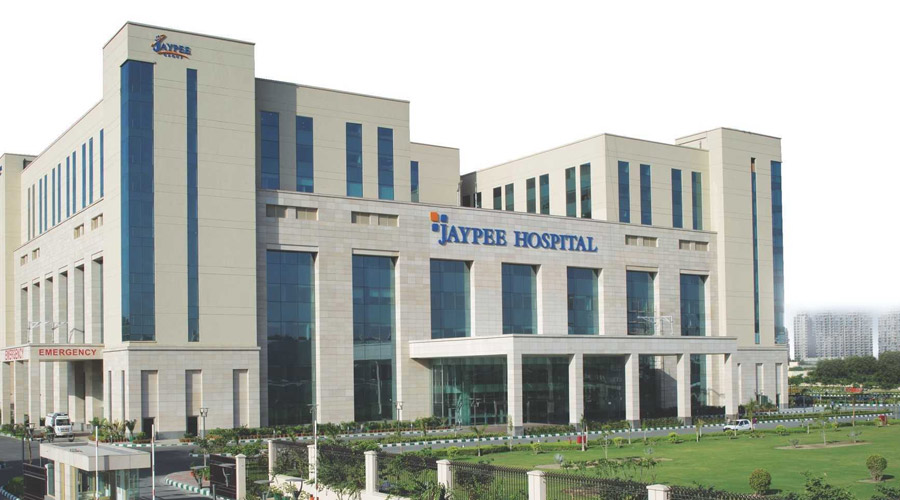
Jaypee Multi-Super Speciality Hospital – Noida
The Jaypee Hospital was conceptualized by our revered Founder Chairman, Shri Jai Prakash Gaur with the vision of promoting world-class healthcare amongst the masses by providing quality and affordable medical care with commitment.
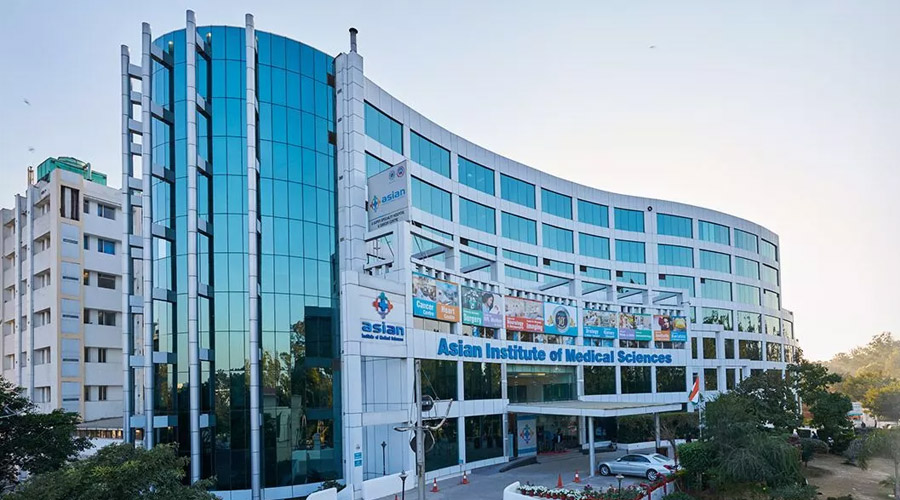
Asian Institute of Medical Sciences
425-bedded super speciality tertiary care hospital is truly futuristic in its services & technology and brings together some of the most talented medical professionals in India. The hospital has been accredited with NABH and NABL accreditations and is equipped with state-of-the-art technology.
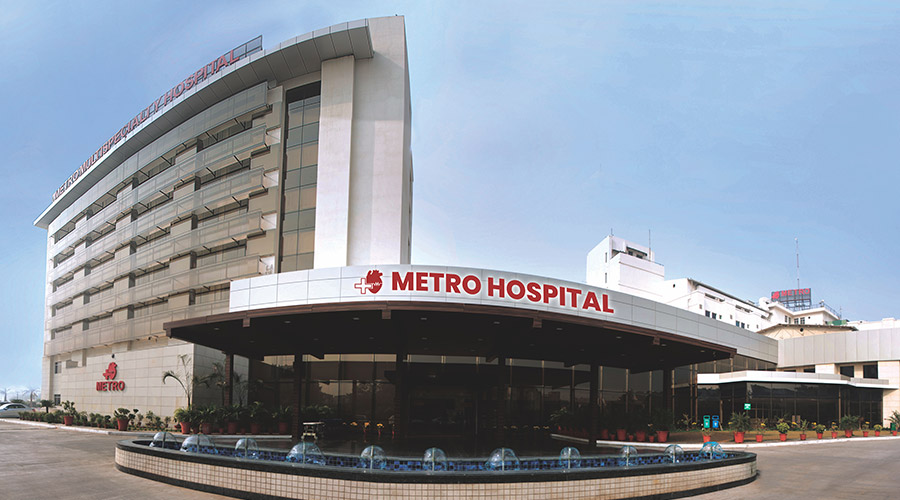
Metro Heart Institute with Multispeciality
Metro Group of Hospitals is a group of 11 hospitals and 1 college (Metro College of Health Sciences and Research), having more than 2500 beds flourishing hospitals and leading one of the biggest group of hospitals in India.

QRG Super Speciality Hospital
QRG Super Speciality Hospital isn’t just another hospital but an amalgamation of the best services the healthcare segment can offer. Our excellent medical infrastructure houses a Critical Care Medicine unit for patients with life threatening diseases.
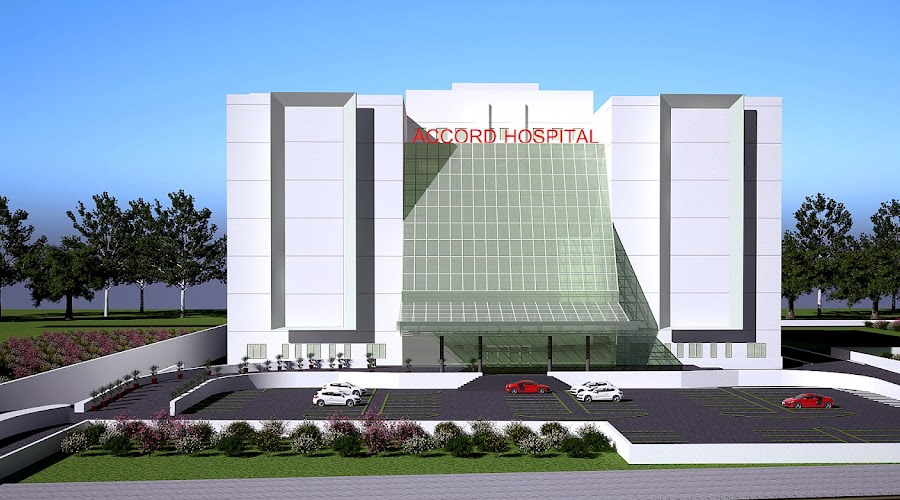
Accord Superspeciality Hospital – Faridabad
The story of Accord began with the thought of leveraging the new age technology with the healthcare infrastructure to serve the patients rightly, effectively, and timely. Accord Superspeciality Hospital is the best hospital in Faridabad, India.
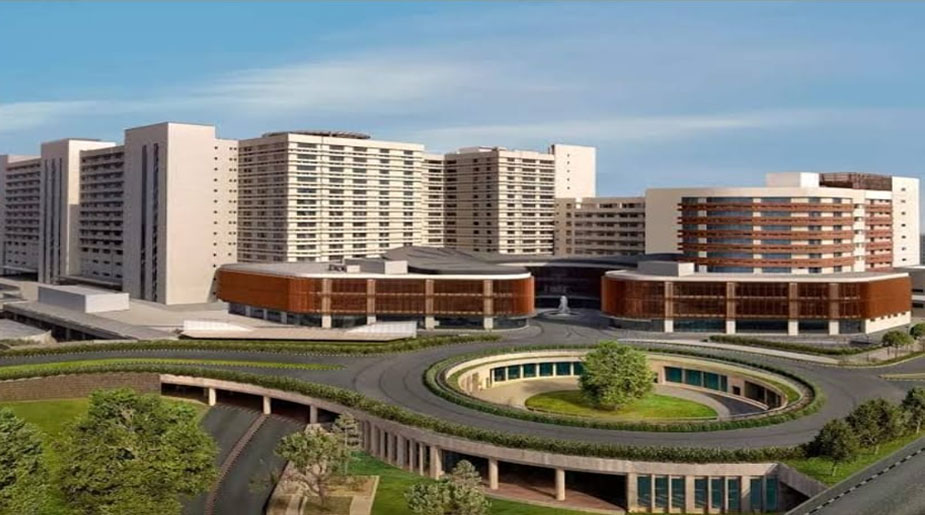
Amrita Hospital, Faridabad
Amrita Hospital, Faridabad is an institution where technology and expertise blend seamlessly with empathy and attention to detail. The hospital in Faridabad Sector – 88 has been designed with its environmental impact at the forefront. The architects began by using construction materials that comply with national and international green building standards.


